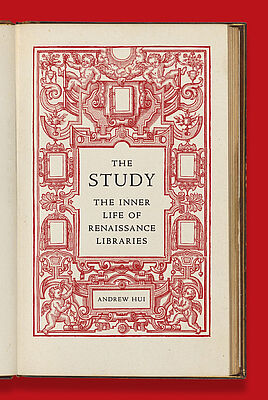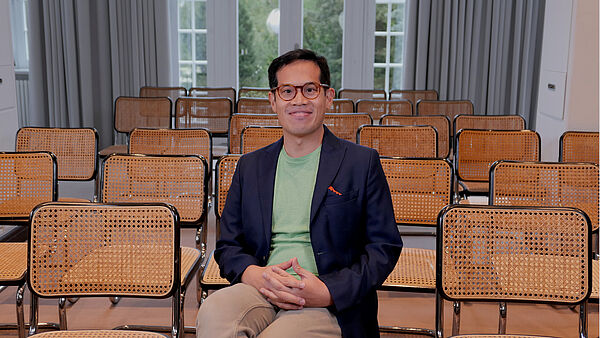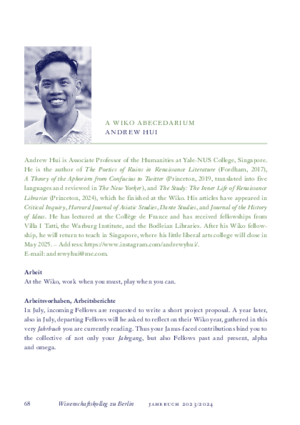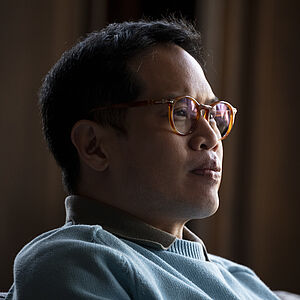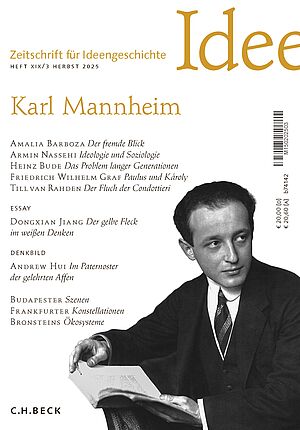
Andrew Hui, PhD
Associate Professor of Humanities
Yale-NUS College, Singapur
Born in 1980 in London
Studied Liberal Arts and Comparative Literature at St. John’s College, Annapolis, Yale Divinity School, the Scuola Normale Superiore, and Princeton University
Arbeitsvorhaben
Confucius the Stoic: The Encounter between Chinese and Western Philosophy in the Global Renaissance
In a 1595 letter, the Jesuit missionary Matteo Ricci wrote that in their teachings and morals, the works of ancient Chinese philosophers were like “another Seneca.” My project, “Confucius the Stoic,” is about the encounter between two cultures – Europe and China – and how this encounter was made possible by a small group of highly erudite religious men. It occurred at the pivotal moment when Renaissance humanism was giving way to the early modern age of science. The Jesuits – a new Catholic order founded to combat the Reformation within Europe and to evangelize the world – constructed the idea of a global humanism, and this construction was made possible, I argue, through the retrieval of the texts of antiquity, both Western and Eastern.I will investigate how Christian missionaries retrieved the texts of Western classical antiquity to explain Confucianism to Europe and conversely retrieved the texts of Confucianism to explain Christianity to China. In seeking to find equivalences between Greco-Roman and Chinese antiquities, the Jesuits translated Euclid, Epictetus, and Aristotle into classical Chinese and brought astronomical and cartographic knowledge into the imperial court. In turn, in their field reports and rendering of the Confucian Four Books into Latin, the missionaries saw the Chinese sharing the same idea of the “natural light of reason” as the ancient Stoics. Eventually, the work of the Jesuits fueled the imagination of European thinkers such as John Webb, Athanasius Kircher, and Leibniz. Thus, this episode in cultural encounters prompts us to re-examine the construction of “East” versus “West” in the formative age of global modernity.
Recommended Reading
Hui, Andrew. The Poetics of Ruins in Renaissance Literature. New York: Fordham University Press, 2016.
—. A Theory of the Aphorism from Confucius to Twitter Princeton, NJ: Princeton University Press, 2019.
—. “Dreams of the Universal Library.” Critical Inquiry 48, no. 3 (2022): 522–548.
Kolloquium, 13.02.2024
Konfuzius, der Stoiker: Vergleiche in der globalen Renaissance
Matteo Ricci hat einmal einen sehr interessanten Vergleich gezogen. Der Jesuit, der als Missionar Chinas berühmt wurde, schreibt in einem Brief an Claudio Acquaviva, seinen Generalsuperior in Rom: „In der Moral ist er ein zweiter Seneca [è nel morale un altro Seneca]“. Beim Subjekt dieses Satzes kann es sich nur um Konfuzius handeln. Diese philosophische Äquivalenz – der Begründer der chinesischen Philosophie als „un altro Seneca“ – wirft viele verschiedene Fragen zur interkulturellen Verständigung auf. Welche philosophischen Vorannahmen ermöglichen diesen Vergleich? Ist diese Verknüpfung zwischen den beiden Denkern eine Konvergenz oder eine Korrespondenz? Welche Abstufungen gibt es in den Ähnlichkeiten und Unterschieden? Um ein Bild der Stoa zu verwenden – worin liegen die verborgenen Knotenpunkte der „kosmischen Sympathie“ (συμπάθεια) zwischen diesen beiden Ontologien? Oder – um einen Begriff aus der chinesischen Kosmologie zu verwenden – was ist das ganying (感應), die „korrelative Resonanz“, die zwischen diesen beiden Entitäten pulsiert?
In meinem Kolloquium stelle ich Ricci als Altphilologen vor, oder besser gesagt, als einen hybriden, bikulturellen Altphilologen, der die griechische und römische Tradition genau kennt und gleichermaßen mit dem chinesischen Kanon vertraut ist. Er führt seine Gastgeber in die antike Philosophie des Westens ein, indem er Entsprechungen zur antiken chinesischen Philosophie sucht, und führt die antike chinesische Philosophie wiederum in Rom ein, indem er Gemeinsamkeiten mit der westlichen Philosophie aufzeigt. Meine These lautet, dass Ricci diese beiden komplexen kulturellen Sphären dadurch aufeinander beziehen kann, dass er die antiken Philosophien des Westens und des Ostens gleichermaßen zu Prolegomena seiner zentralen Mission der Evangelisierung macht. Das lebenslange Projekt Riccis bestand darin, diese Entsprechungen zu erfinden – ein Projekt, das einen bemerkenswerten Moment in der Begegnung von „Ost“ und „West“ in der frühen Neuzeit darstellt. In diesem frühneuzeitlichen Austausch entstand eine neue globale Matrix des kulturübergreifenden Wissens, in der sich die Kategorien „China“, „Westen“, „Antike“ und „Vernunft“ überschnitten.
Publikationen aus der Fellowbibliothek
Hui, Andrew (Princeton, 2025)
The study : the inner life of Renaissance libraries
Hui, Andrew (Chicago, Ill., 2022)
Dreams of the universal library
Hui, Andrew (Princeton, 2019)
A theory of the aphorism : from Confucius to Twitter
Hui, Andrew (New York, 2016)
The poetics of ruins in Renaissance literature Verbal arts
Hui, Andrew (Cambridge, Mass., 2015)
Wordless texts, empty hands : the metaphysics and materiality of scriptures in Journey to the West
